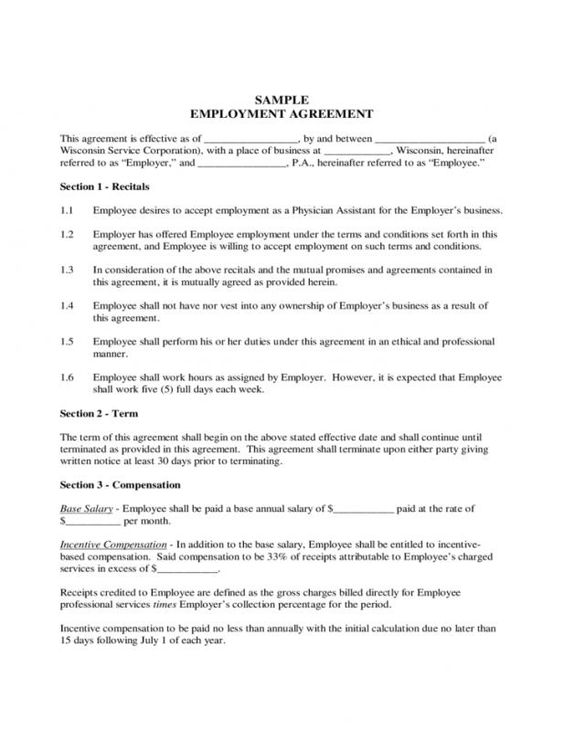A Probationary period is a time to set a candidate to prepare for long innings in the concern. To learn the moves in his workplace.
“Excellence is not a destination; it is a continuous journey that never ends.”
Brian Tracy

So you have finally landed to your dream job. And you are in an exciting position. But there’s still one final stage waiting for you to complete…
And that is the Probationary Period.
Nowadays, almost every role, at every level, will most likely include some probationary period to see you are a perfect fit for the team and company culture. It is typically three to six months depending on the company’s policy. This standard procedure serves a degree of protection as in some cases; candidates may oversell themselves during the interview, which is then not identified until a few weeks have passed in their role.
So, making first impressions is vital in securing your favourite job role permanently. Here are some of our top strategies on how to get through your probation, which certainly helps you pass your first few months with flying colours.
“Each job requires a conscious choice of career path and a different plan of development.”
Auliq Ice
What are the common reasons people fail on Probationary Period?
The reason a lot of new hires fail to complete the first few months are:
- Poor interpersonal skills, including communication, listening, conflict resolution, etc.
- Unwillingness to accept feedback from the manager.
- Being excessive emotional.
- Lack of motivation while doing the job.
- Employee showing bad temperament for the work.
The good news is that all these are areas that can easily get improved upon with the right attitude and determination.
Your work is to discover your work and then with all your heart to give yourself to it.
Buddha

Top strategies for cracking your probation in Probationary period.
- Make a great first impression
The first impression matters. So, do all the possible things to make the best impression on your first day. Put a warm smile on your face, display positive body language, dress smartly and work on your approachability. It will demonstrate that you take yourself and your job seriously. Keeping attention on your working time also is a great idea. Reaching the workspace a little early and leaving a little late than your contracted hours will show that you’re keen.
Strictly avoid self-sabotaging behaviours, such as being late or absent during your trial period – especially in the first few weeks otherwise you have a genuine reason.
- Measure your progress
You need to set down some smart goals for you once you clarify job description and company’s expectations from you. It will help you focus on the objectives that you need to meet and measure your progress towards them. Seek out for feedback from your team members, and arrange regular one-on-ones with your manager.
You can also keep a journal to record your development, and jot down the challenges that you face and your achievements. It will enable you to keep track of your progress and pull evidence together to show your manager at your end-of-probation review.
- Find opportunities to shine
Always seek for opportunities to go beyond and above the expectations of your colleagues and employer. Holding yourself up to the greatest possible standards of work can help you become an indispensable member of the team.
- You can offer help to a busy colleague or take responsibility for a new task.
- You can volunteer for a project that plays to your strengths, or use your skills to improve a system or process that your teammates use.
Helping out your co-workers in a way that makes their lives easier will get you noticed for the right reasons.
- Build a network
A strong support network can increase your visibility. A network both inside and outside your team can make it easier to collaborate, build rapport, share knowledge, and learn about different parts of the organisation. Take the initiative and make an effort to get to know your colleagues. You can invite them for lunch or a coffee or just taking the time to have a quick chat. You can also use this time to work on your interpersonal skills and be friendly even with “difficult” colleagues.
- Consider the bigger picture
Keep yourself motivated throughout your probation period by focusing on what you ultimately want to achieve in your career. Where do you see yourself in the short, medium and long-term? How the challenges that you face during your trial period will help you get there?
Imagine the skills that you need to accomplish your career goals. You may feel afraid to admit to gaps in your knowledge while on probation as you are afraid of looking incompetent. But asking questions, participating in on-the-job training, and being proactive about your personal development will get your skills up to code quickly and will peg you as a real “go-getter.”
Following these tips could surely help you pass your probationary period. However, it’s important to relax a bit in your new role as being always on edge could also send negative signals to your manager. Instead, incorporate healthy working practices, such as arriving on time and asking questions, into your general routine. Being a good, trouble-free employee will impress your bosses, and will give you job security.
Each day remember your purpose. Remember why you do what you do. We don’t get burned out because of what we do. We get burned out because we forget why we do it.
Jon Gordon





